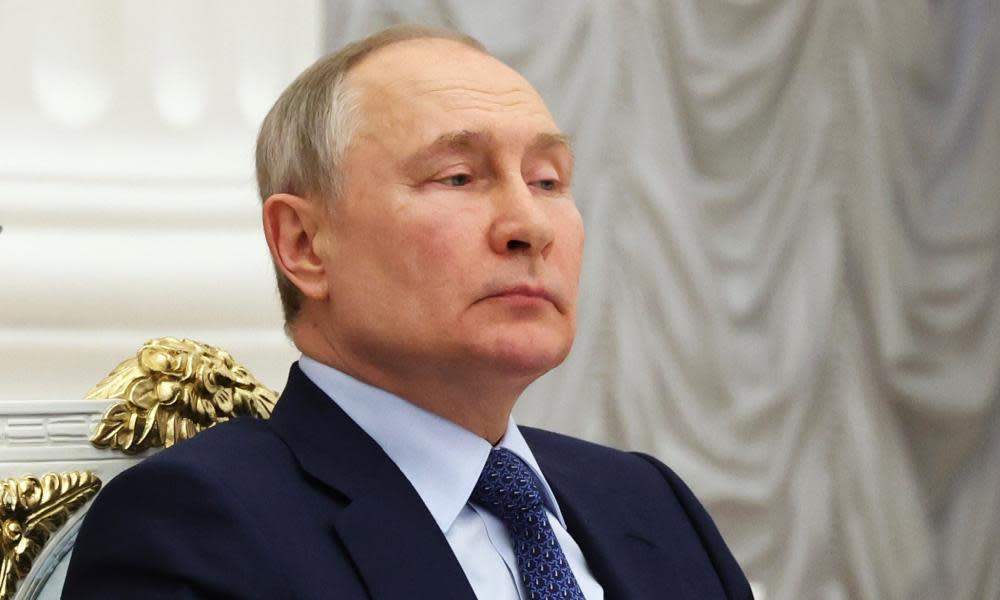The Guardian view on Vladimir Putin’s war: terror without purpose

Vladimir Putin has never been honest with the Russian people about the war in Ukraine. He lied about the scale of the invasion and the reasons for it. The deception is sustained with propaganda and repression. Outlawing the truth has kept the reality of war mostly out of sight, which is a condition of public acquiescence.
That doesn’t mean that millions would rise up against their government if confronted with the true horror of what is being done to Ukraine in their name. The bellicose cult is well embedded in Russian society. But it is easier to support a war that unfolds on television than one that can be heard flying overhead, which is why drone strikes against targets in Moscow this week have rattled the Kremlin.
Ukraine denies involvement in the attack, as it does automatically when military operations cross Russia’s borders, in deference to Kyiv’s western allies who are made uncomfortable by such bold incursions. There were also reports on Wednesday of a fire at an oil refinery in the southern Russian Krasnodar region, started by a drone. The raid on Moscow caused little damage but plenty of alarm, which is the point. Getting the war within visible range of ordinary Russians is embarrassing for Mr Putin. It undermines his aura of control. It is harder to pretend things didn’t happen when people can see them from their windows.
Most analysts interpret these attacks as part of a disorientation strategy, forcing the Kremlin to divert resources and attention away from the frontline in advance of a Ukrainian counteroffensive to recapture occupied territory. The same applies to the murkier business of raids across the Ukrainian border into Russia’s Belgorod region, carried out by far-right, anti-Putin Russian militias. The fog of war is dense, with Ukrainian strategists cultivating uncertainty to unsettle Russian defences and Russian lines of command, tangled amid factional bickering in Moscow and between rival commanders on the ground.
That makes it all the more important to keep a focus on core facts and moral imperatives: Ukraine is the victim of an unprovoked invasion by forces whose primary tactic is terrorising the civilian population into submission by means of indiscriminate murder and destruction. This campaign of atrocity has not succeeded, because Ukrainians have shown heroic fortitude and ingenuity on an epic scale. Also, they have been armed for that endeavour by western governments, which had to balance fear of escalation with a realistic appraisal of the character of Mr Putin’s regime, and the threat he posed to European peace if unchecked.
Russia did not start its territorial aggression against Ukraine in 2022, but eight years earlier, in Crimea. Mr Putin did not stop there because Russia wanted to have complete dominance over the domestic and foreign policy orientation of the government in Kyiv. He gambled that the west would look away again. Thankfully, the Russian president was mistaken. He thought then that Russia’s appetite for carnage, even from a losing position, would outlast western solidarity with Ukraine. That too turns out to be a miscalculation, so far.
Without a follow-up strategy, Mr Putin’s war is sustained by his monstrous pride, readiness to sacrifice conscript soldiers for no measurable purpose and a political apparatus that allows him to cover up his failures. Those conditions make Russia’s position look solid. But they could turn out to be brittle, as long as Ukraine’s allies stand firm.

 Yahoo News
Yahoo News 
